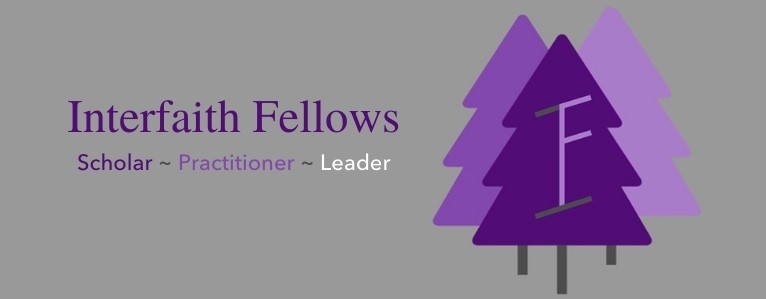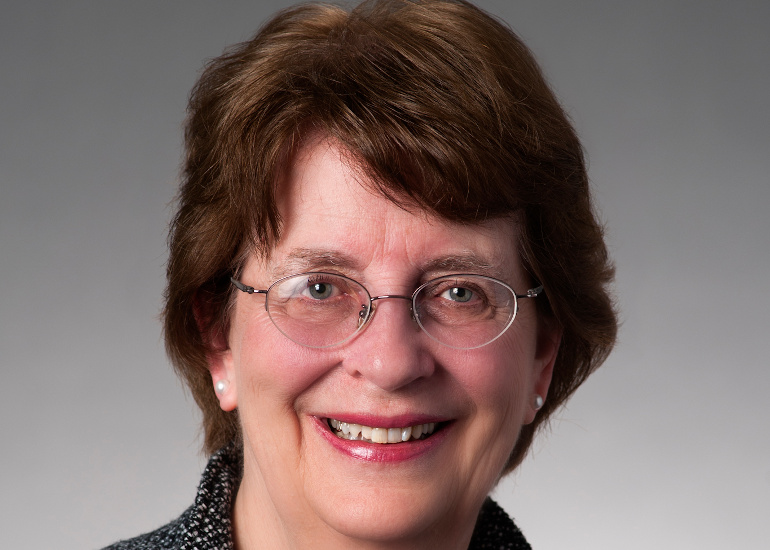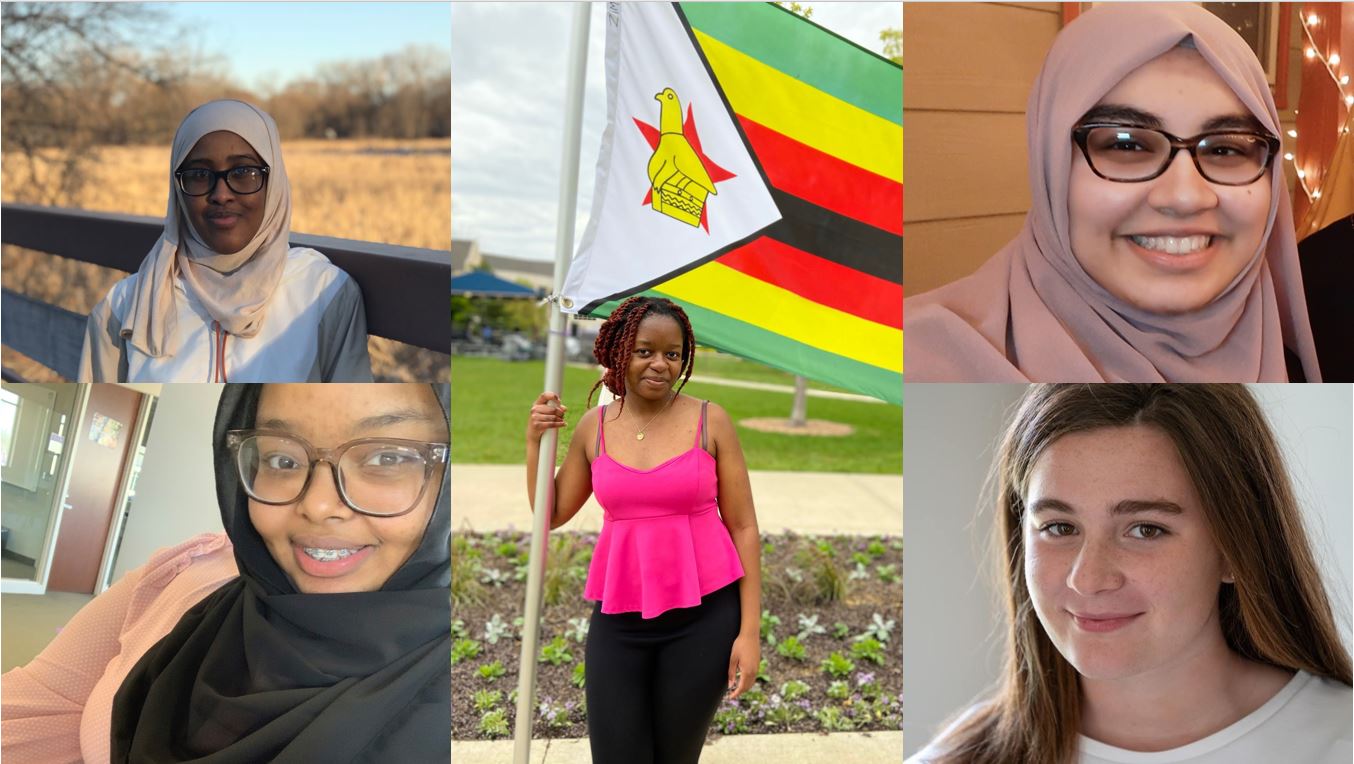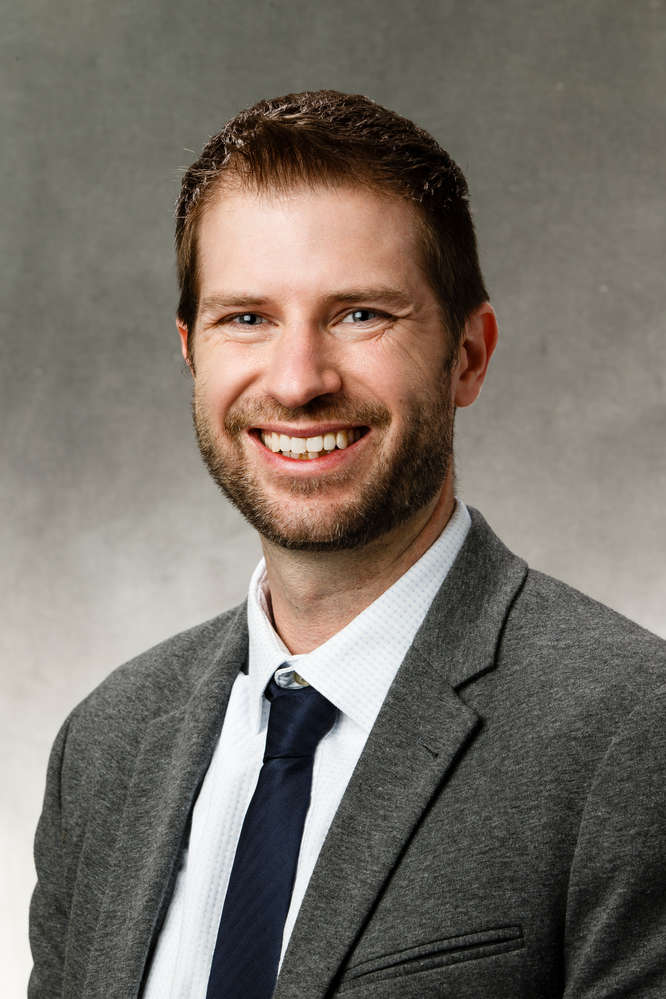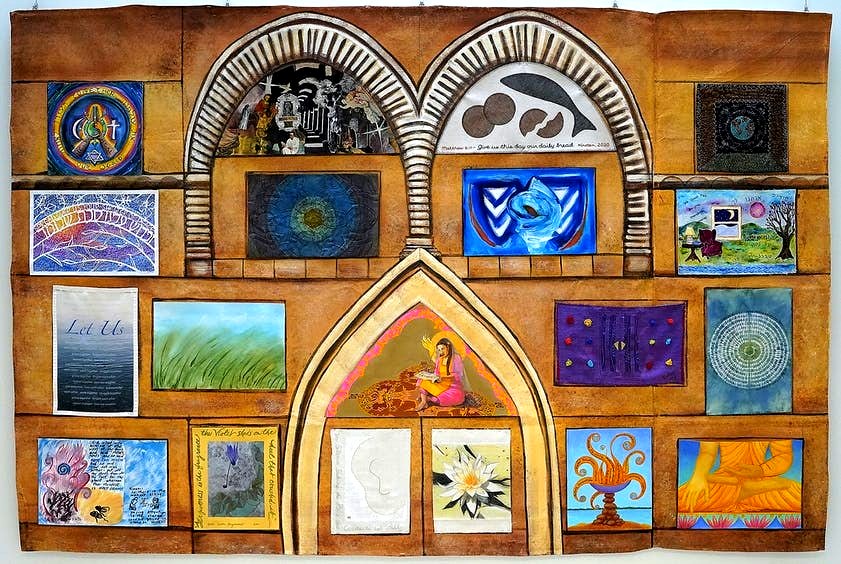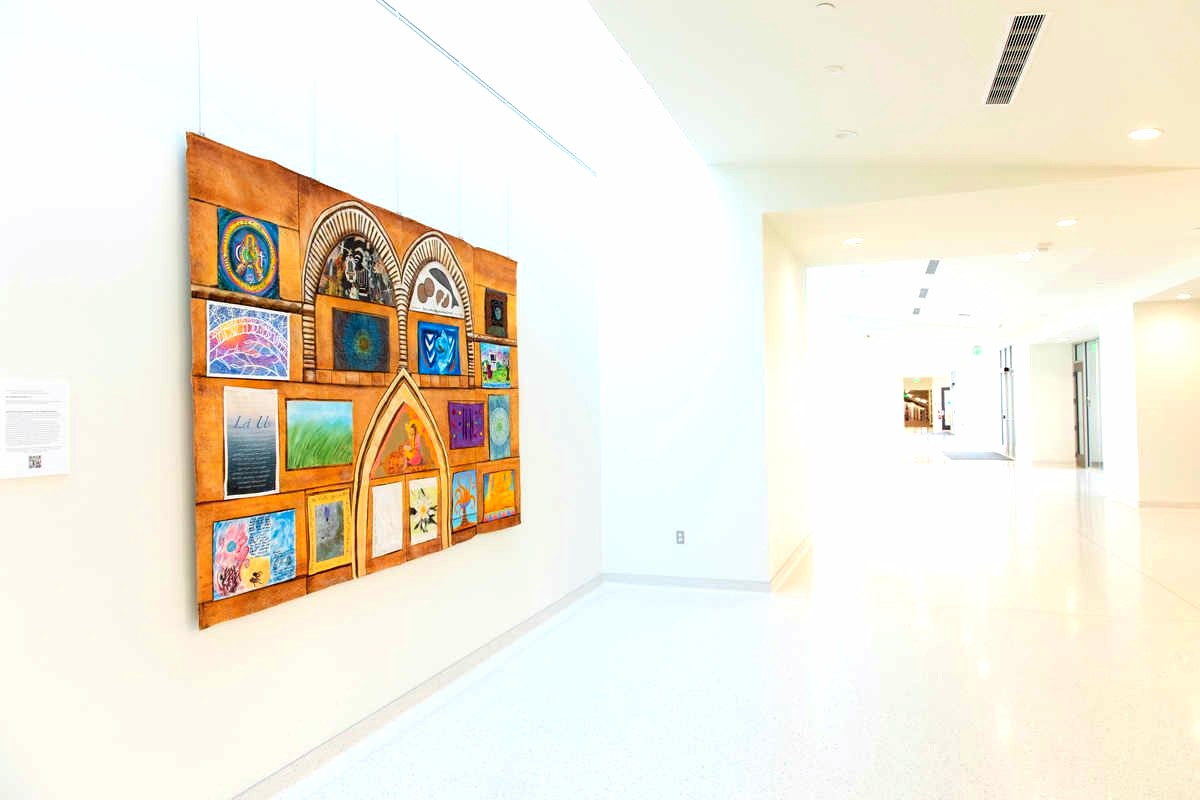Lois Dament, esteemed administrative coordinator for the Jay Phillips Center in the College of Arts and Sciences at the University of St. Thomas, retired this fall after 37 years of service to the university.
Dament joined St. Thomas in 1984 and has since flourished in a variety of academic and administrative roles. She started in the Social Sciences Division (then economics, sociology, history, political science) and concurrently in the English Department, earning a B.A. and M.A. in English and receiving the Joseph Connors Award for academic excellence, and raising five children in the process. Professor Anne Klejment recalls,
From the start, Lois served as one of two admins for the Social Science Division and English Dept in the era of typewriters, word processors, mimeograph machines, and hand -written phone messages! We all were crowded into the 4th floor of OEC. Lois and another admin were crammed into a tiny “fish-bowl” office. Smart and funny, she mastered new devices and procedures quickly and thoroughly and efficiently serviced faculty needs. No matter which position she held, Lois has always been a trusted and most knowledgeable “go-to” person on campus. She was a UST Loaves and Fishes volunteer at Faith Lutheran in Frogtown. She usually was one who cooked some of the 50lbs of ground beef that we used to make tater tot hot dish! She was also completing her undergrad degree in English at the same time–and was one of my students in the History of Women in the United States. She was an outstanding student, and is is very, very bright!!!” And, for me, she is a cherished friend. — Anne Klejment
Lois then served the Graduate School of Social Work in 1989, transferred to the Registrar’s Office in 1990-93, before a decade (1993-2003) in the New College (which subsequently became the School of Continuing Studies – SCS). Gene Scapanski, Dean of SCS, adds,
Congratulations to Lois on her retirement! I had the privilege of working with her for five years starting in 1998 at the School of Continuing Studies. Her love of St. Thomas and her dedication to our adult students was exemplary. She understood their goals and struggles because she, herself, was a life-long learner, getting her bachelor and master degrees while working and raising a family. She has lived the mission of St. Thomas and contributed to it so effectively in multiple ways. I know she will be missed! –Gene Scapanski, S.T.D.
In 2007, Lois transferred to the College of Arts and Sciences (CAS) where her talents were impressively utilized to serve several departments, offices and programs. These included the CAS Deans Office, Communication Studies (later Communication and Journalism), Theater, Muslim-Christian Dialogue Center (MCDC), Health and Exercise Science, American Culture and Difference, Justice and Peace Studies, the Undergraduate Communication Research Conference, and the Jay Phillips Center for Interfaith Learning (JPC). Terry Langan, former CAS Dean and Professor of Economics, remembers Lois,
First when I was an adjunct faculty member teaching in the economics department and eventually during my time as academic dean, we have had many conversations over the years. In all of that time, I never once heard Lois say, “I can’t do that.” She was more likely to say, “Well, I have never done that before, but I will figure it out.” Lois is a problem solver who figured things out for many different people during her 37 years at St. Thomas. On behalf of those many people, I would like to thank Lois for her excellent work. — Terry Langan
Combining a broad range of management skills, rich university experience and wisdom, and a deep-seated interest in interfaith and intercultural relationship building, Lois brought fresh knowledge and perspectives to colleagues, students, and community members through her various roles on campus. Dr. John Merkle, former director of Jay Phillips Center for Interfaith Learning at St. Thomas, praises Lois,
During my time as director of the Jay Phillips Center, it was always an honor and a joy for me to work with Lois Dament. In my early years as director, Lois helped me establish many contacts at St. Thomas that made my work with the center more collaborative and effective. And I was always particularly grateful that Lois helped plan and host the center’s main events, making sure that guests felt welcome and that events ran smoothly. I could not have been more pleased with the work Lois performed for the Jay Phillips Center, and I am happy to extend my congratulations to her upon completing an outstanding career of service to St. Thomas. — John Merkle
Hans Gustafson, director of the Jay Phillips Center, remembers his “first day of employment at St. Thomas and visiting Lois’ office. We chatted for about two two hours as she showed me the ropes. Lois also introduced me to her family and rich history here at St. Thomas. That day I realized how lucky I was to be working alongside someone as warm, caring, and knowledgeable as Lois. It is no wonder she flourished in her role with the Jay Phillips Center and the Muslim-Christian Dialogue Center, for she truly put a human face on the centers’ aim to manifest interfaith hospitality toward students, staff, faculty, and community members.”
Lois will miss her work with the JPC and MCDC, especially the opportunities to help host a variety of speakers from around the country and plan diverse events that focused on intercultural and interreligious learning. However, she looks forward to having a little more time to spend with her husband Jim as well as her children and grandchildren.
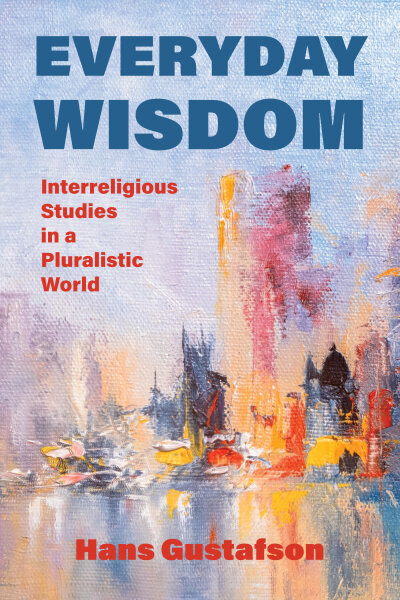

 With Steve Hunegs, executive director of the Jewish Community Relations Council of Minnesota and the Dakotas (JCRC), the Jay Phillips Center for Interreligious Studies at the University of St. Thomas
With Steve Hunegs, executive director of the Jewish Community Relations Council of Minnesota and the Dakotas (JCRC), the Jay Phillips Center for Interreligious Studies at the University of St. Thomas 